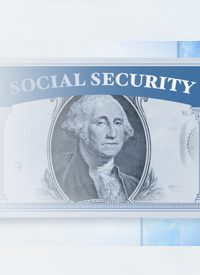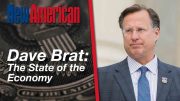
The trend toward a growing proportion of the population relying on government programs instead of labor for its income has been an observable phenomena since at least the days President Johnson’s “Great Society” programs were initiated in the mid-1960s. Now, however, the percentage of income received from the government is equal to half of all income received from working for a living, and federal and state budget deficits are metastasizing as politicians whose reelection depends on giving away “other people’s money” find themselves running out of working citizens to tax.
As reported by CNBC, the study by TrimTabs Investment Research revealed that “Government payouts — including Social Security, Medicare and unemployment insurance — make up more than a third of total wages and salaries of the U.S. population, a record figure that will only increase if action isn’t taken before the majority of Baby Boomers enter retirement.”
In a sense, given a federal deficit which has soared past the $14 trillion mark, the fact that one-third of American “income” is actually redistributed from someone else really should not be all that surprising. Polite fictions about Social Security “lockboxes,” for example, never entirely concealed the simple fact that every “government payout” of the type described in the TrimTabs study is a form of income redistribution. If the goal had actually been to encourage Americans to save for their retirement or possible disability, there were far more effective and efficient means that could have been utilized. But the expansion of such redistribution is now accelerating at a rate that now threatens to devour the economy. The blunt assessment of an editorial by Investor's Business Daily reflecting on the TrimTabs research summarizes the situation quite well: “A society can't survive moving in this direction.” The amount of “income” dependent on government largesse is ballooning at an almost unimaginable rate. In the words of the CNBC story:
Even as the economy has recovered, social welfare benefits make up 35 percent of wages and salaries this year, up from 21 percent in 2000 and 10 percent in 1960, according to TrimTabs Investment Research using Bureau of Economic Analysis data.
“The U.S. economy has become alarmingly dependent on government stimulus,” said Madeline Schnapp, director of Macroeconomic Research at TrimTabs, in a note to clients. “Consumption supported by wages and salaries is a much stronger foundation for economic growth than consumption based on social welfare benefits.”
The economist gives the country two stark choices. In order to get welfare back to its pre-recession ratio of 26 percent of pay, “either wages and salaries would have to increase $2.3 trillion, or 35 percent, to $8.8 trillion, or social welfare benefits would have to decline $500 billion, or 23 percent, to $1.7 trillion,” she said.
The first option would appear to be an economic impossibility unless there is a dramatic change in federal and state policies, since it is hard to imagine a substantial expansion in wages and salaries at a time when federal interference in the economy has locked the nation into an alarmingly high rate of unemployment. The second option — cutting government spending — could prove a political impossibility, if a Congress which was elected with a mandate to slash deficit spending proves unwilling to take the decisive steps needed to simply reduce the government’s expenditures to the level of its income. Given the intersection of difficult economic and political choices — and a political class which has learned that avoiding such choices is usually the best way to guarantee reelection — it remains to be seen whether the American people will keep the pressure on their Representatives to stop spending before the economy spirals down to a level far worse than has been experienced the past several years. Having a substantial proportion of the public living off the government dole is certainly not what made America a great nation, but it could very well lead this country to forfeit that status.



